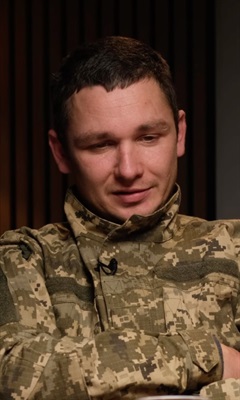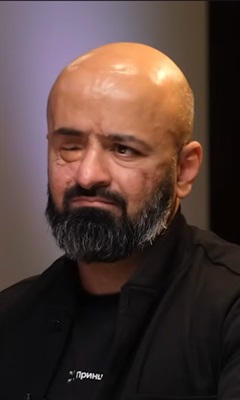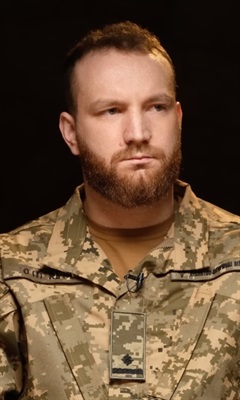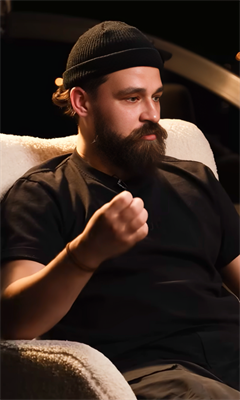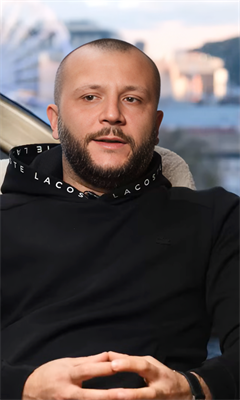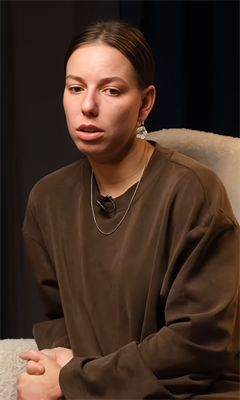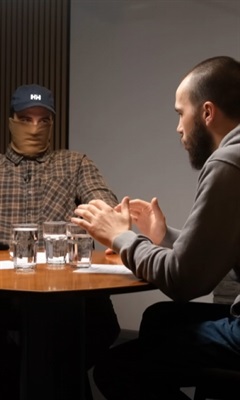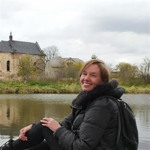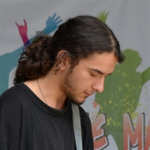Nobody needs them. How a Chernivtsi citizen saves people with disabilities from Donbas
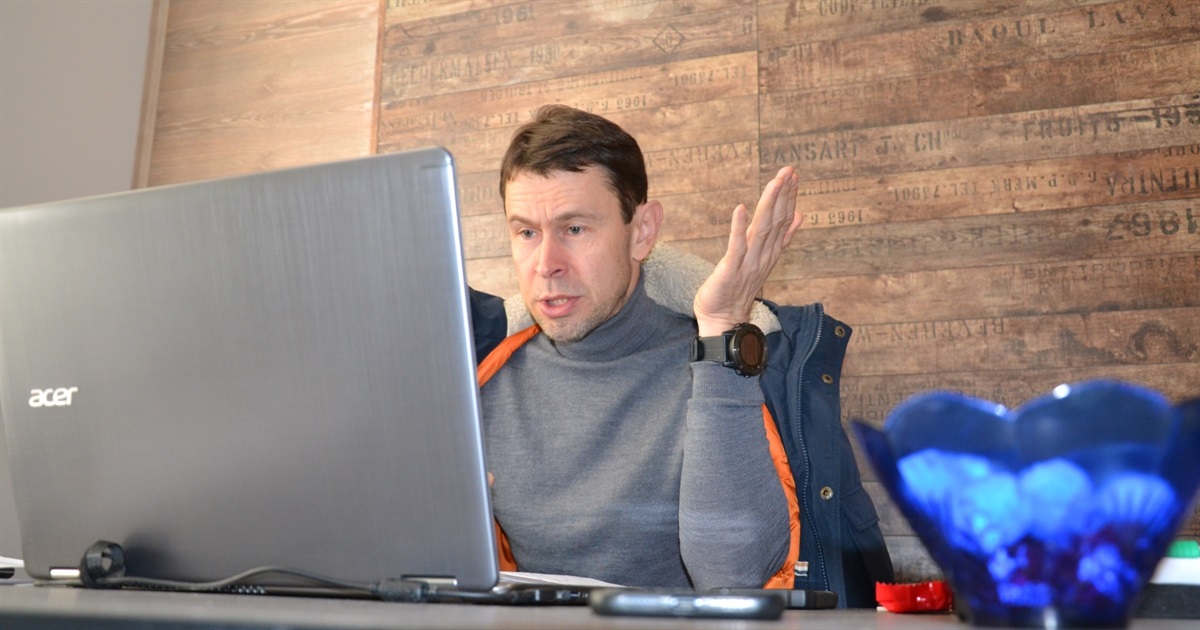
It all started with canned stew
I’ve caught Ihor Lohvinov, the French language teacher at the Chernivtsi University, during his stream on Facebook.
“First of all, concerning the matter of pet food — thank you, the issue has been resolved. What concerns people who call us and ask to evacuate their acquaintances, friends, and family members — our possibilities are extremely limited. We can get them out of the cities but we have no accommodations for them. So if you want to help, the first thing to do is to find places to live for people with disabilities.
Yesterday at 9 p.m. we had more than 420 evacuation requests (the interview was recorded on April 21). Our volunteers can’t efficiently process so many requests. We have to choose and evacuate some immediately, while staying in constant contact with others.”
Lohvinov says that every Tuesday he is a professor and entrepreneur, while the rest of the time he is a volunteer. He started volunteering when his coworker asked him to help with food provisions for the evacuees. He called his friends and asked them to join the efforts. That’s how all this started.
There are currently 7 people working at the Charity fund Freedom Trust, two of whom have evacuated from Kyiv. They joined the team and are also volunteering.
“We have 5 buses for evacuation (27 seats). Three of them have been re-equipped for people with disabilities. The most recent evacuation was from the Luhansk region. We’ve evacuated 55 people, among them were Viktor and his parents from Lysychansk. He has joined our team, and we are planning to take him along next time. Viktor knows the place well, which is extremely important. When we get there on one bus and have to visit 70 places, it’s important to be as quick as possible. We try to divide a city into squares and move in such a way so that there is one local person assigned for three buses”.
Ihor tells a story of a woman who left Severodonetsk with her husband on a motorcycle; she was shot at the leg, the bullet passed through her body and hit her husband’s leg. She got gangrene in her leg.
“She’s been calling us for two days but I can’t help her, because the current situation is such: the evacuation has been canceled, the cars can’t get there. We are keeping in touch with local military and police officers, and they don’t approve of this route for now”.
I’ve responded that we were evacuating “people without disabilities”
I’m asking Ihor why he evacuates people with disabilities:
“It’s easy to bring the bus, board people with unlimited mobility there, and leave. Nobody wants to deal with people with disabilities. One day a woman called me and said that her mother couldn’t move and nobody wanted to evacuate her. I responded that we were evacuating “people without disabilities,” because I wasn’t ready for such a question. And she said: “Fine, I understand, I’m sorry.” It’s difficult to talk about this even now. We’ve managed to evacuate her, but not the loved ones she asked for. They ended up under the rubble of the neighboring house. There wasn’t enough time.”
Ihor is now focused on the evacuation of people with disabilities
Ihor’s eyes are brimming with tears. I suggest ending the conversation. He refuses. His phone is tirelessly vibrating all through our conversation.
I’m asking what the evacuation of people with disabilities and limited mobility looks like.
“If we find out about people with limited mobility who can sit, we keep in touch with them and with the locals. They are mostly parishioners of different denominations who have old, sometimes shot-at cars, which they use to gather people able to sit in one spot. Then our bus arrives there, picks them up, and drives them to Sloviansk or Dnipro. All depends on the evacuation routes and the situation on the railway stations”.
They are trying to make one or two evacuation trips every week. The team is funded by friends and acquaintances. Seeing as the rides are dangerous, not everyone wants to lend their cars. On average the cost of fuel for one evacuation amounts to 50 thousand hryvnias. This does not include the cost of food and accommodation.
The team also has international volunteers and a paramedic who came here on their own from London. Now they went to Romania to get a cage for transporting a lion from Kharkiv to Kyiv. Their work is closely connected with the Vostok SOS fund representatives.
“They also participate in the evacuation. Their team consists of incredibly brave men and women. Sometimes we share the evacuation locations with one another; we’ve got each other’s back. We really want to buy one more Sprinter. We realize that the war will not end soon”.
The places are taken by those who can move
“During our last ride, we evacuated an elderly man with no legs and his blind wife. I remember their faces. During the evacuation, they didn’t understand where we were going, the woman’s face was full of extreme fear and utmost tension”.
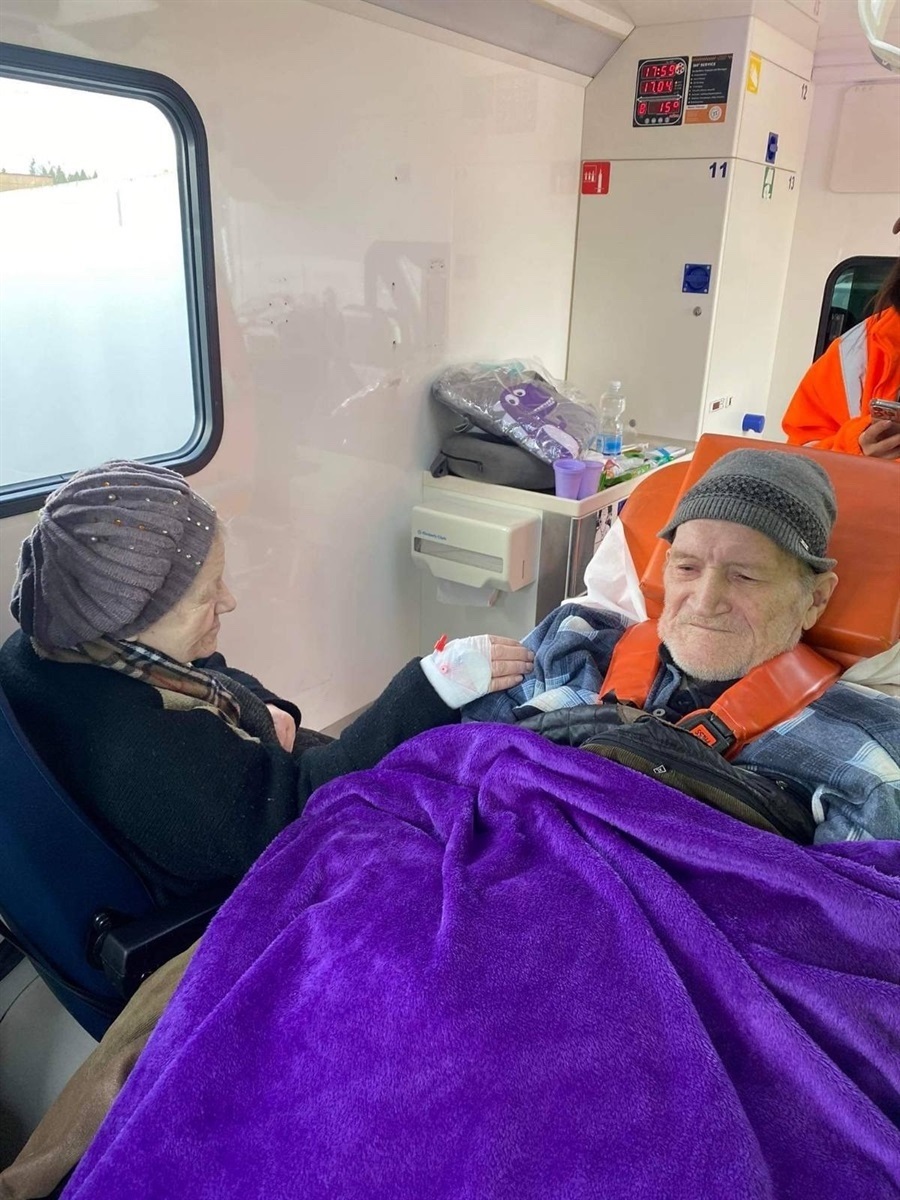 Elderly people evacuated from Lysychansk
Elderly people evacuated from Lysychansk
First, we took them and nine other people with disabilities to Lviv. We settled them at the Israel IT Company. Then we transferred the married couple to a rehabilitation center in the Czech Republic. In the last pictures we received from the Czech hospital, the elderly couple was smiling. I think that this difficult expedition was worth the smile and the slightly smoothed-out wrinkles on their faces.
“Unfortunately, we can’t currently evacuate people with mental disabilities. We tried to, but the stress of evacuation leads to aggravation of their condition,” Ihor sighs.
He explains that the aggravation leads to holding up the entire bus. The volunteers can’t really afford it,s and they also can’t leave a person in need.
“You evacuate a person, look into their eyes, they talk to you, but the odds of an aggravation are high, and we can’t proceed. We would need to call an ambulance, to immobilize a person. We can neither leave them nor move on. Now we ask whether the person is mentally stable before the evacuation.”
Here are the top priorities for those who want to evacuate people with limited mobility or with disabilities:
-
providing medical care during and after the evacuation;
-
providing food;
-
providing accommodation suitable for the needs of people with disabilities.
Two countries and one pseudo-republic
The Makohon family, spouses Anatoly and Liudmyla and their son Viktor, evacuated to Chernivtsi from Lysychansk on April 15. Volunteers from Ihor Lohvinov’s team helped them to get out.
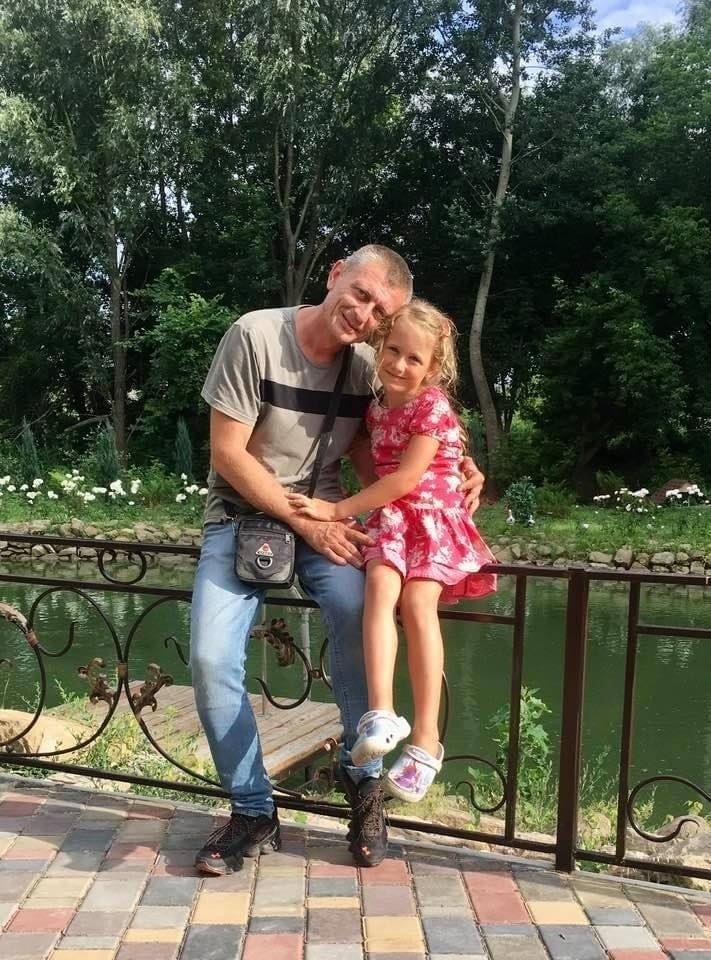 Viktor Makohon with his daughter Nastia. Credits: the hero’s archive
Viktor Makohon with his daughter Nastia. Credits: the hero’s archive
Now Viktor is helping Ihor in volunteering, plots future evacuation routes, and looks after his elderly parents. The picture from his social media account was taken before the war. It shows a smiling family on a holiday, a fishing trip. Viktor’s family are now safe in France. His wife and daughter were the first to leave. When they evacuated and were standing at the Lysychansk railway station, shells were flying over their heads.
It was more difficult to move the parents. Viktor’s father is in post-cancer rehabilitation, while the left half of his mother’s body is paralyzed after a stroke. She has Group I (subgroup B) disability. For more than a year, she has been using a wheelchair with assistance. Viktor’s wife found information about volunteers who evacuated people with disabilities, and Viktor arranged the evacuation.
“I am very grateful to the volunteers. I don’t know when they sleep or rest… They are driving right into hell. When we were leaving Lysychansk for Sloviansk, we were surrounded by the sounds of shelling, shooting, and explosions. We boarded the evacuation train in Sloviansk and went to Lviv. In Lviv, we spent three days at a gym. Ather a couple days, Russian missiles hit the city; then Ihor Lohvinov moved us to Chernivtsi city hospital,” says Viktor’s father Anatolii Makohon.
Anatolii Makohon says that their city has been constantly fired at for over a month. The neighboring cities are Severodonetsk and Rubizhne; many houses, kindergartens, and schools have been destroyed there. Civilians are being bombed. They lived in an apartment building in Lysychansk. They left behind a three-room apartment and a car.
Many people are still staying in the city: some hope that their homes won’t be bombed, others are sick and can’t leave, while still others run from shellings and sleep in their basements. That’s how they survive. There are no air raid sirens in Lysychansk; Severodonetsk is on the left, 6 kilometers away, and Rubizhne is on the right. Both of them are constantly under fire.
“Svatove district had been immediately entered by the Russian troops, there wasn’t much resistance; then the severe battles started. It was close to us, so we could hear everything. We held on, but when we saw the ruins, the burned down houses, and what happened to Popasna, we decided to leave,” the man says.
Liudmyla Makohon says that all her loved ones, four families, have lost their homes. Her cousin left for Bakhmut; her daughter’s house was shelled while she and Liudmyla’s 7-year-old grandson were inside. The house wasn’t big, and the roof wasn’t falling fast, so they managed to escape and didn’t get trapped under the rubble. Now their family is separated: her sister is in the Kharkiv region, and her daughter is in occupied Luhansk. They can’t contact each other.
“My acquaintances called and said that it’s horrible there as well. Another sister from Kirovske (Holubivka — edit.) called and said that the situation is worse than in 2014. She’s working at the emergency department and says that they don’t have enough time to get injured people to hospitals,“ the woman says.
Liudmyla was very worried about what would happen to her: she’s overweight and has limited mobility.
“Young men came, so scrawny and small. I asked them what they were going to do with me. They assured me that everything would be fine. They managed to get me out.”
Anatoly adds that the patrol police building, the new State Emergency Service of Ukraine building, and the market have been destroyed in Lysychansk.
Three apartment buildings near their home are in ruins now. Food and fuel became scarce. The supermarkets continued working when the war started, but the shelves were empty. There were no more supplies. In general, now only small stores are open: they sell bread, milk products, and meat.
“Our son and volunteers helped us. We didn’t have the possibility to stand in line when humanitarian aid was distributed. One moment people are standing there, the next stun grenades are thrown at them, and the air is filled with smoke and explosions. It was terrifying to wait in those lines,” Luidmyla continues.
People used basements as shelters. But the Makohon family was physically unable to go down there.
“We had boarded up the windows. We hoped that everything would be over soon, that we would get rid of the Russians and Putin would kick the bucket. When the invasion started in 2014, there were some pro-Russian people. They talked about a union with Russia, “Banderas from the West,” and federation as a part of Ukraine.”
Anatolii continues: “Now everyone is of the opposite opinion. Putin and the Russian military are Nazis. Lots of locals have joined the Territorial Defense forces. We don’t understand why our country is being attacked. We have relatives in Russia.
My wife and I have traveled all over the Soviet Union. I used to be in the military. My daughter works as a doctor in Russia. And now we are enemies. My daughter says that the Russians are like zombies: they listen to Kyselyov, Skabeeva, Solovyov. I sent them the pictures showingh the truth. One can duck from an excavator bucket, but not from a bomb flying in one’s direction. The bomb will hit one’s back.”
Now the Makohon family is searching for accommodations, ideally a house.



